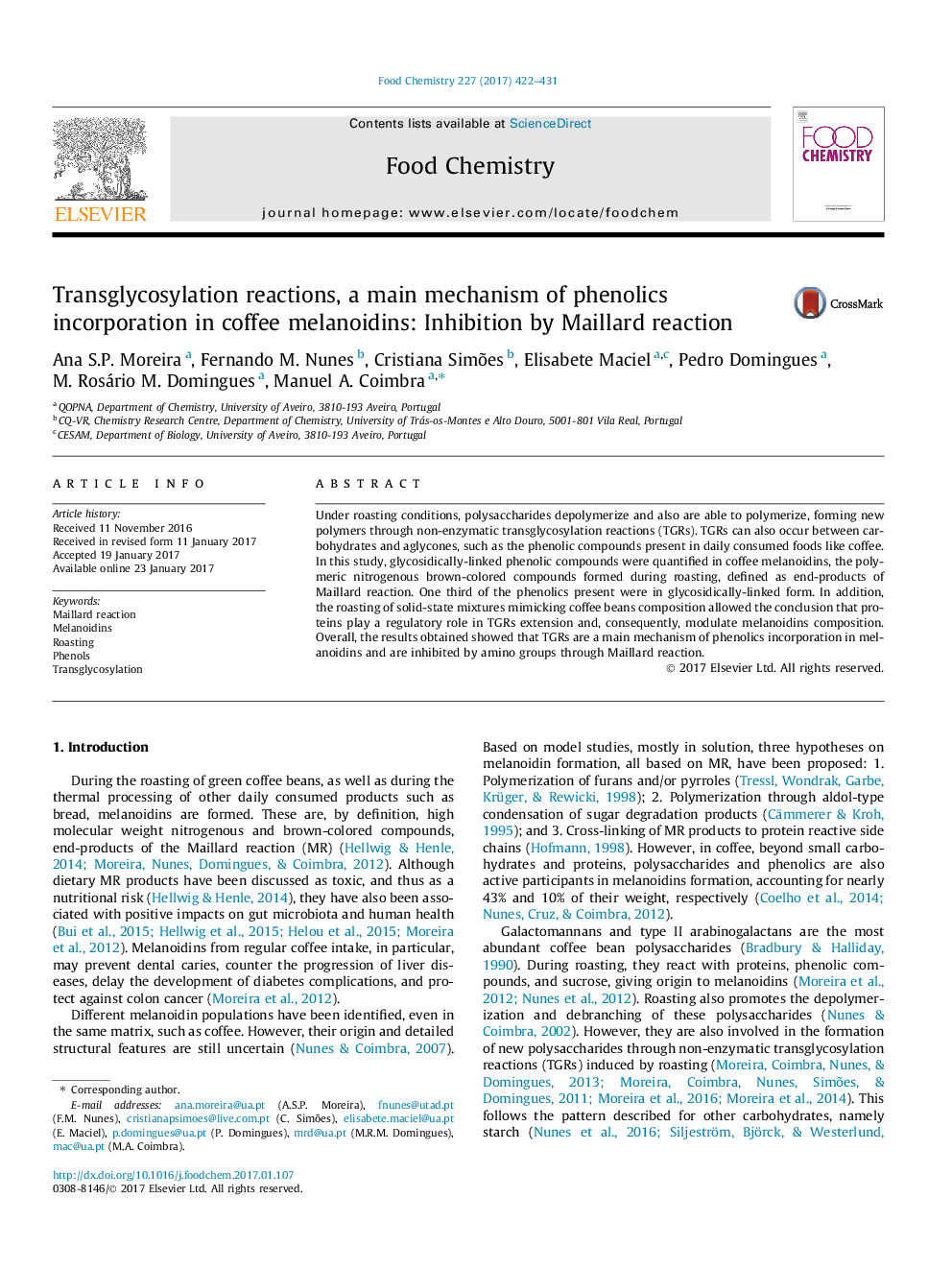| Article ID | Journal | Published Year | Pages | File Type |
|---|---|---|---|---|
| 5133312 | Food Chemistry | 2017 | 10 Pages |
â¢Non-enzymatic transglycosylation reactions (TGRs) are induced by roasting.â¢One third of the phenolics present in coffee melanoidins are incorporated via TGRs.â¢Proteins play a regulatory role in TGRs extension, modulating melanoidins composition.â¢TGRs are inhibited by amino groups through Maillard reaction.
Under roasting conditions, polysaccharides depolymerize and also are able to polymerize, forming new polymers through non-enzymatic transglycosylation reactions (TGRs). TGRs can also occur between carbohydrates and aglycones, such as the phenolic compounds present in daily consumed foods like coffee. In this study, glycosidically-linked phenolic compounds were quantified in coffee melanoidins, the polymeric nitrogenous brown-colored compounds formed during roasting, defined as end-products of Maillard reaction. One third of the phenolics present were in glycosidically-linked form. In addition, the roasting of solid-state mixtures mimicking coffee beans composition allowed the conclusion that proteins play a regulatory role in TGRs extension and, consequently, modulate melanoidins composition. Overall, the results obtained showed that TGRs are a main mechanism of phenolics incorporation in melanoidins and are inhibited by amino groups through Maillard reaction.
Graphical abstractDownload high-res image (125KB)Download full-size image
